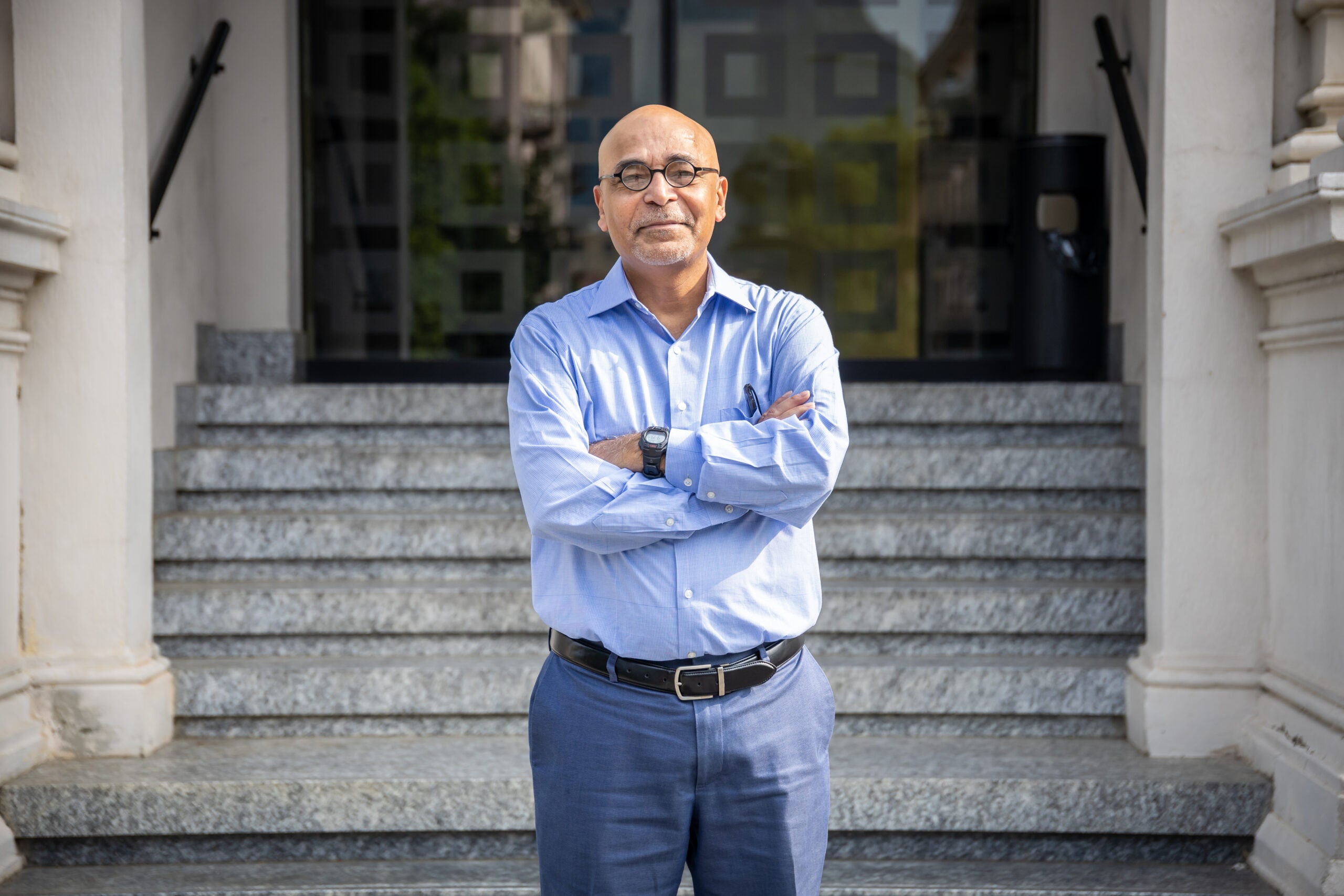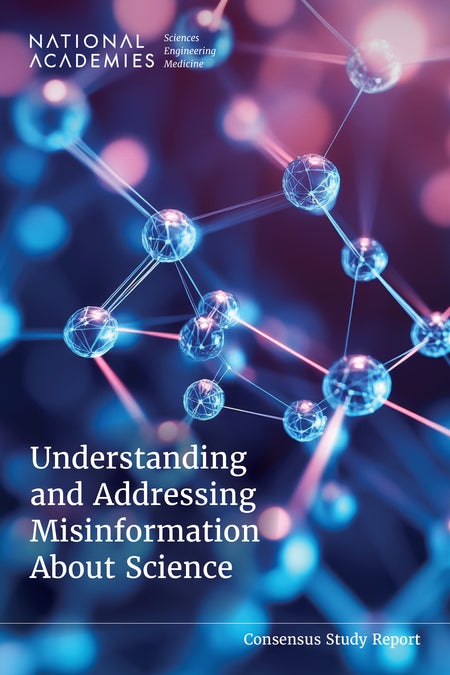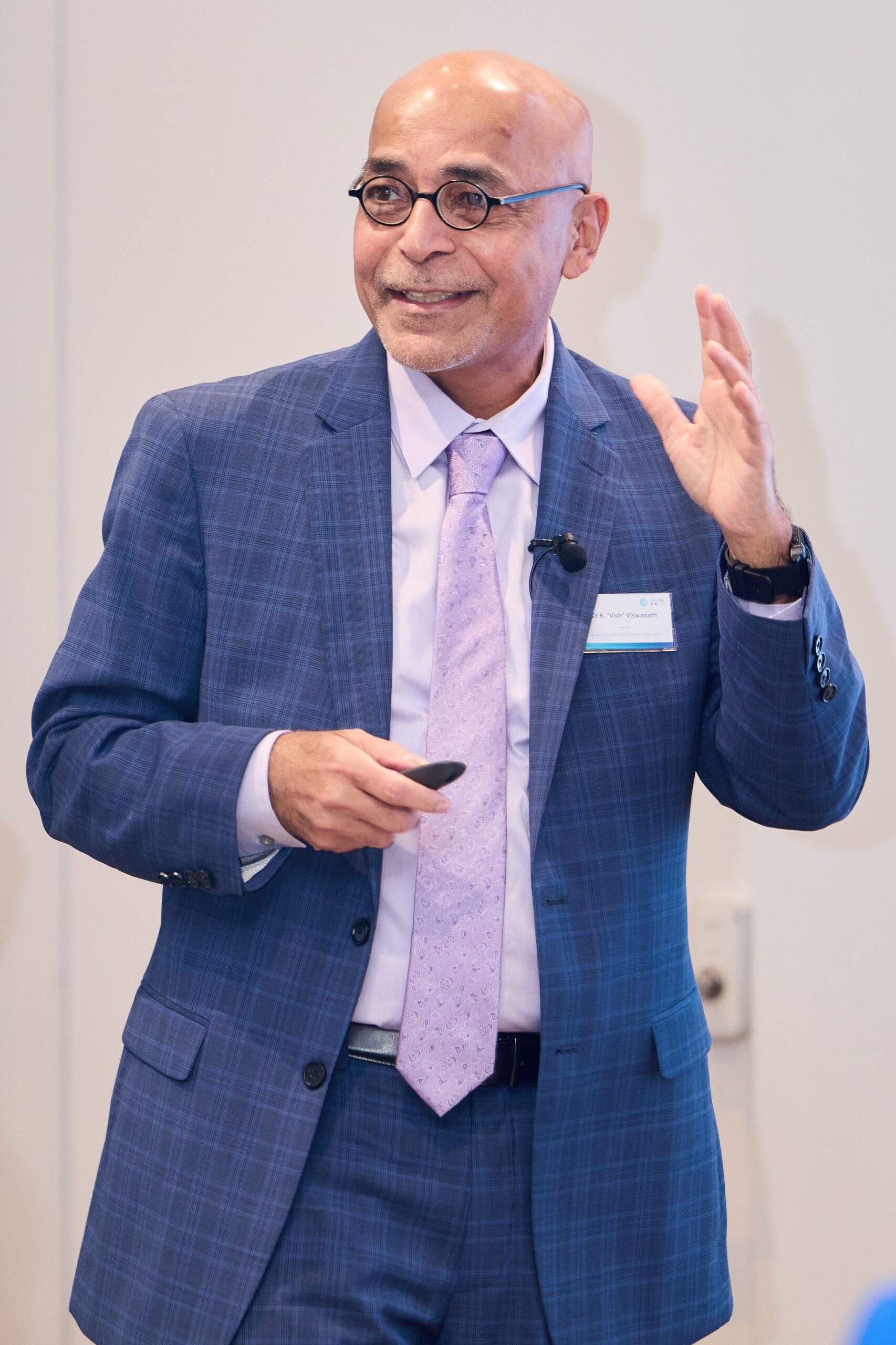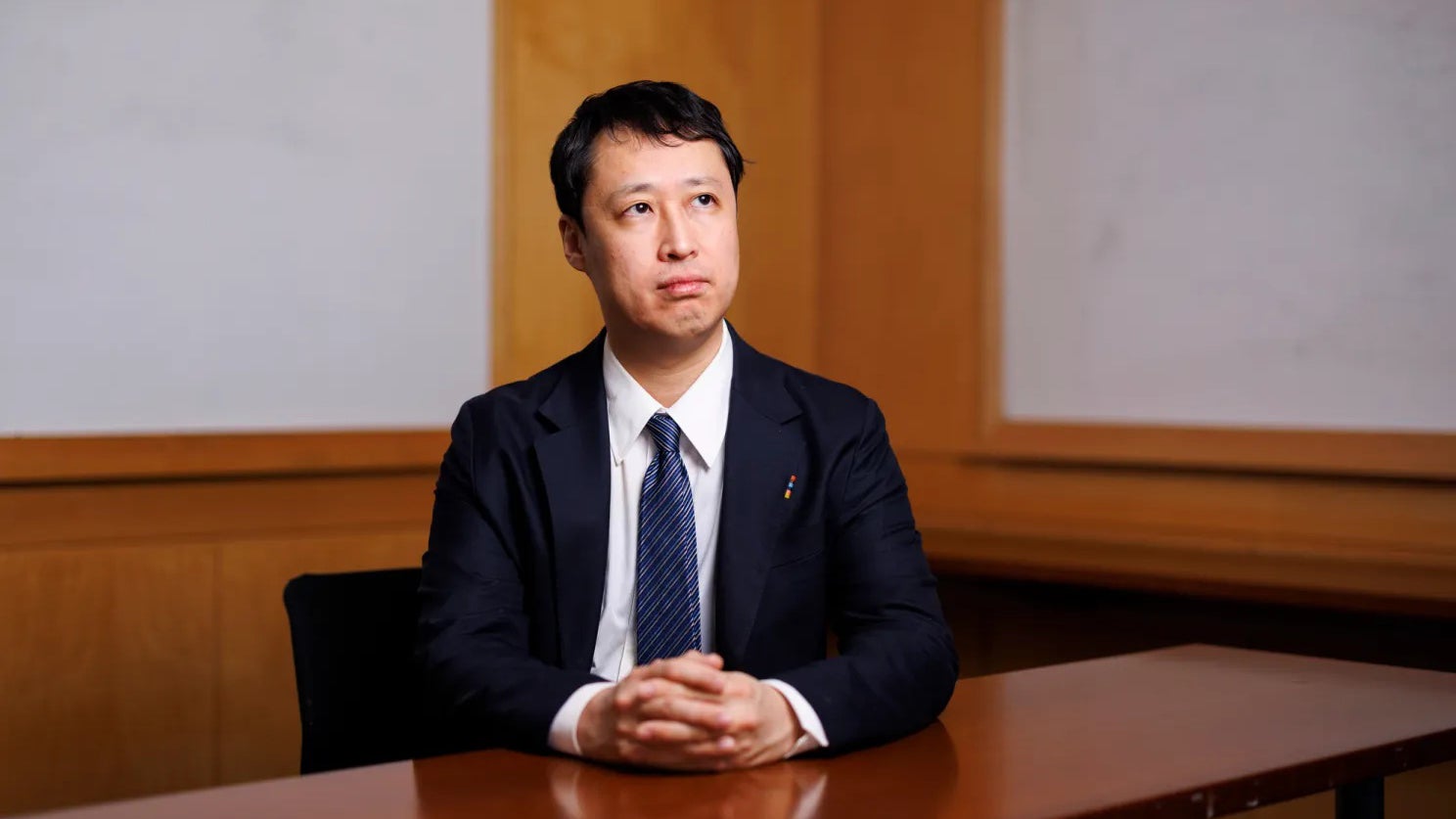Understanding and Addressing Misinformation About Science


In today’s rapidly evolving information landscape, the spread of misinformation about science has emerged as a significant public health concern. To address this issue, the National Academies of Sciences, Engineering, and Medicine convened a committee of experts to explore the nature, scope, and impact of misinformation in the US and provide guidance on interventions, policies, and future research. Dr. K. “Vish” Viswanath, Lee Kum Kee Professor of Health Communication and Director of the Lee Kum Sheung Center for Health and Happiness, served as the Chair of the Consensus Study Committee for this critical report. The “Understanding and Addressing Misinformation About Science” Report was published in December 2024, and can be read online here.
The Problem: Misinformation about Science
Misinformation about science—defined as “information that asserts or implies claims that are inconsistent with the weight of accepted scientific evidence at the time”—poses a threat at individual, community, and societal levels. When individuals absorb misinformation, it can lead to misbeliefs that impede their ability to make informed personal and community decisions, such as those related to health or responses to natural disasters. This misinformation can also exacerbate existing disparities within marginalized communities, worsening health inequities and discrimination. Moreover, misinformation has the potential to distort public opinion, undermining trust in scientific institutions and authorities.
These impacts were starkly illustrated during the COVID-19 pandemic, when misinformation about the virus and vaccines led to serious repercussions. A study conducted in 2023 estimated that from May 2021 to September 2022, a minimum of 232,000 deaths among unvaccinated adults could have been avoided. (Jia, et al., 2023).
Misinformation about science isn’t a new issue. In fact, the US Food and Drug Administration was established in 1906 to combat widespread misinformation about drugs and food safety. However, the current information ecosystem, particularly with the rise of online platforms, has exacerbated the spread of misinformation. Social media applications, large search engines, and various websites have reshaped information and communication dynamics, making it challenging for the public to discern scientific expertise and the credibility of information sources. This is particularly concerning during crises when public uncertainty peaks—such as during the Covid-19 pandemic— increasing the potential for misinformation to thrive.
Barriers to accessing reliable scientific information further exacerbate this problem. When accurate information is unavailable, individuals resort to whatever sources they can find, often encountering misinformation. This situation is compounded when scientific information is restricted, limited to certain languages, or culturally irrelevant.
Solutions: Addressing Misinformation and Providing Accurate Information
Addressing misinformation requires a multifaceted and proactive approach. The report suggests the following solutions:
- Monitoring Misinformation:
- Continuous monitoring of the information ecosystem is essential to track and document the origins, spread, and impact of misinformation across platforms. This effort can help mitigate the influence of misinformation and inform effective responsive strategies.
- Providing Credible Information:
- The report suggests establishing an independent, non-partisan consortium to identify and curate high-quality science information, ensuring broad access to information of public interest.
- Ensuring availability and access to accurate science information in times of “Information voids” on scientific topics of interest to people.
- While social media platforms contribute to the spread of misinformation, they also present opportunities to enhance the dissemination of quality science information. Leveraging these platforms can help counteract misinformation by increasing the visibility of credible and accurate scientific content.
- Enhancing journalism capacity is another critical area. Strengthening the media’s ability to report on science, especially during times of crisis, can ensure that the public receives reliable and accurate information.
- Community-based efforts are crucial in fighting misinformation. Local organizations, such as businesses, non-profits, and faith groups, are actively working to improve access to credible science information. The report suggests supporting these initiatives to boost their impact.
In conclusion, effectively addressing misinformation about science is essential for safeguarding public health. This report underscores the need for a strategic approach to tackle this urgent issue. By implementing continuous monitoring, enhancing access to accurate information, leveraging social media for disseminating credible science, and bolstering journalism and community-based efforts, we can mitigate the harmful impacts of misinformation.

At the Lee Kum Sheung Center for Health and Happiness, we are dedicated to translating science into practice and policy. We strive to provide and promote evidence-informed information on well-being –physical, psychological and social, to address information voids and promote easier access. We achieve this through a variety of methods: hosting seminars and symposia with experts on critical topics, both in person and online, to reach global audiences; partnering with community-based organizations to build capacity and promote well-being information; working with Harvard Chan School students to offer science-informed well-being workshops for the community; and utilizing social media and podcasts to disseminate recent scientific findings.
Under Dr. Viswanath’s leadership, both in this report and through his role at the Center, we aim to empower individuals and communities with the scientific knowledge and tools necessary to make informed decisions and foster a more knowledgeable and resilient society.


